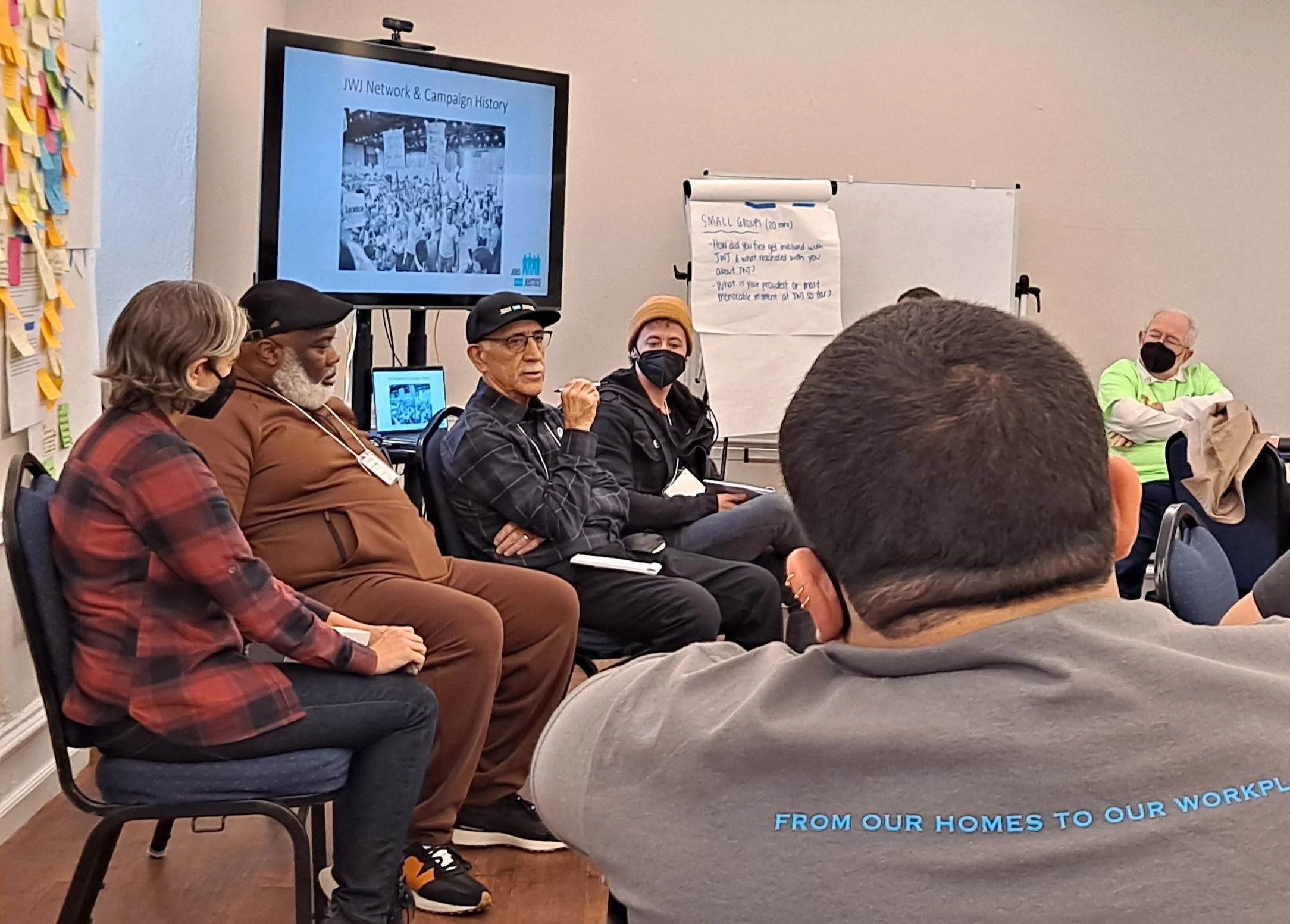We attended the 2023 JwJ National Gathering!
Last month, National JwJ invited affiliate organizations to send representatives to a National Gathering in D.C. for a weekend of connection, strategizing, and recommitting to a shared vision of building worker power through collective bargaining. Not only did we learn about the exciting achievements and victories in movement building around the country, but we reflected on inflection points where organizers changed tactics or recognized another approach. Sharing stories and experiences help us to build our knowledge base and, critically, our relationships with each other.
And what else do organizers do when they get together? They dance!! DC Jobs with Justice asked us to immerse ourselves in the unique history of Go-Go music, a genre specific to DC, which they folded into their campaign of organizing for DC statehood. Pulling people out into the streets to celebrate their music and learn more about why representation matters – DC Jobs with Justice invites DC residents to consider the strength of a majority BIPOC district in Congress.
Organizers with North Bay Jobs with Justice, working in Sonoma, Napa, and Marin Counties in California, talked about how they protect workers in a “millionaires’ playground.” Given its global reputation for wine production, the region’s agricultural sector depends upon the labor and deep cultivation knowledge that migrant and temporary workers bring with them to sustain the soil and the harvest. At the same time, workers are on the frontlines of the climate emergency. North Bay JwJ shows up for those workers in many ways, including showing up in the wee hours of the morning during harvest to meet with agricultural workers, to share resources, and to serve as watchdogs. When bad actors are discovered, North Bay JwJ shows up to protests with their enormous mascot – a red-capped Acorn Woodpecker – to shame them and demand fair wages and safe work conditions.
Arizona JwJ leader Steve Valencia was recognized for his long-time commitment to fighting for workers’ rights through community and labor organizing. The Arizona team recently hired its first paid organizer, who is building on that coalition’s deep roots by organizing community to fight for migrants’ rights to fair legal representation in court. We learned about how small organizations, like the Tompkins County Workers Center, has galvanized change in Ithaca and around the Finger Lakes region through union drives, campaigns to raise the minimum wage to the living wage, and a statewide push to restore unemployment and other benefits to “excluded” workers in industries, like gig work and other private contracting.
I attended a panel discussion and conversation about rural organizing, since I am based in the Connecticut River Valley in Western Massachusetts. The region is a well-known for its agricultural abundance, but also for the jobs in education, healthcare, and emerging areas, like cannabis. It was great to connect with other organizers building worker and community solidary beyond major metropolises– and to learn about what “rural” means in different parts of the US. I learned about how JwJ in East Tennessee has been creating more apprenticeship programs to create pipeline to good union jobs, especially in former coal mining towns in Appalachia. And an organizer in Southern Oregon spoke about the challenges of fighting for larger gains in workers’ rights when facing immediate needs from climate catastrophes that have struck the Pacific Northwest.
Through panel discussions, small roundtables, and casual conversations over meals we connected across big issues – workers’ rights, family and medical leave, legal representation, attacks on education, climate change. Our organizations are grappling with campaigns and problems that are deeply informed by our different geographies, land histories, and diverse policy landscapes, but it is in this tremendous network of knowledge that we are able to create powerful coalitions that affect change.



